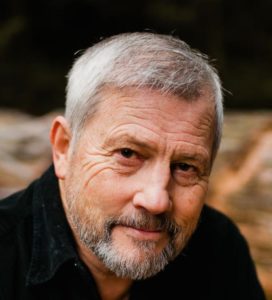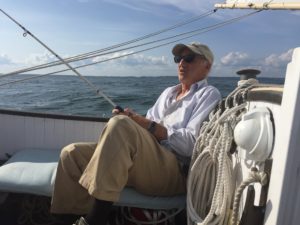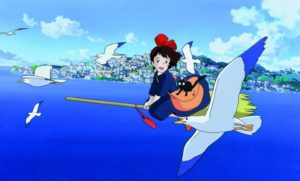Karl Marlantes: Deep River, a Novel
November 19, 2019 by David
Filed under Fiction, WritersCast
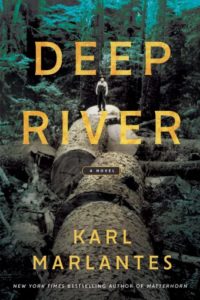 Deep River – Karl Marlantes – 978-0-8021-2538-5 – Atlantic Monthly Press – Hardcover – 736 pages – $30 – July 2, 2019 – ebook version widely available at lower prices.
Deep River – Karl Marlantes – 978-0-8021-2538-5 – Atlantic Monthly Press – Hardcover – 736 pages – $30 – July 2, 2019 – ebook version widely available at lower prices.
“Deep River seems a work born from Willa Cather by way of Upton Sinclair. But this new book is its own animal, and it’s something of a masterpiece… In Deep River, [Aino] takes her place beside Antonia Shimerda as one of the great heroines of literature.”—BookPage (starred review)
Several years ago I discovered Karl Marlantes’ first novel, Matterhorn, which is a loosely autobiographical novel about the Vietnam War, in which Karl served as a Marine lieutenant. I think that is one of the best war novels I have ever read and was pleased to interview Karl about that book.
That book was followed by a nonfiction book called What it is Like to Go to War, which I also read and was affected by. What I said in 2011 still holds true: this book is a deeply thoughtful and moving work of nonfiction about the nature and meaning of war, and what it means to the individual warriors who participate who fight, as well as to the society that gives them that responsibility.
It took Marlantes almost thirty years to write and rewrite Matterhorn. Almost ten years after he completed that book, he has now turned in a completely different book, an historical novel set in the early 1900s, starting in Russian occupied Finland and moving to the Pacific Northwest. The three Koski siblings, Ilmari, Matti, and the politically radical young Aino, flee Russian oppression and come to the United States.
They join a community of other Finns in the logging area in southern Washington, during a time when massive trees of the old growth forest are being harvested by hard working men and dangerous technology. It is fertile ground for the establishment of radical labor movements like the IWW (Industrial Workers of the World, also known as the Wobblies). The two Koski brothers build their lives in this environment amid danger and many challenges, while Aino, just one of the book’s many also hard working independent women, works to build a union in an environment where organized labor is not welcomed by the logging industry or the power structures of the day.
Karl has built this novel following the structure and characters of the great stories of the Finnish oral tradition, written down in the nineteenth century as the Kalevala. It is a truly magisterial novel that weaves together so many strands of American and immigrant cultures, documents the struggles of the early twentieth century in the great forests of the Pacific Northwest, and shows us how human beings find a way to make meaningful lives despite the harshest challenges. Nothing comes easy for the Koskis their friends and families, but everything about them is redemptive and strong. It’s impossible to read this book and not be moved.
Reading Deep River is a commitment – it’s a long book – and there are inevitably times when it becomes difficult to keep track of the whole story and the many compelling characters in the book. That is not a criticism. The book is gripping, and well worth the time and attention of the reader. And it is impossible not to read it in the context of our current political circumstance. Reading about the sacrifices made by workers in the early twentieth century, to make advances for labor that are now taken for granted, and imagining their struggles as evidenced by the characters in this book, who are so thoroughly human in their differences and outlooks, personalities and beliefs, brings forth a range of thoughts about what has become of America today. We live in a world that others made great sacrifices for, and have somehow managed to avoid making sacrifices of our own. The people of Deep River as imagined by Karl Marlantes, deserve better from us.
I had the great pleasure to interview Karl in New Haven in a building on the Yale campus, where he was visiting during his book tour.
Karl Marlantes graduated from Yale University and was a Rhodes Scholar at Oxford University, before serving as a Marine in Vietnam, where he was awarded the Navy Cross, the Bronze Star, two Navy Commendation Medals for valor, two Purple Hearts, and ten air medals. He is the author of the novel, Matterhorn and a work of nonfiction, What It Is Like to Go to War. He lives now in Washington State.
Buy Deep River from RJ Julia here.
Podcast: Play in new window | Download
Publishing Talks: David Wilk interviews poet and editor Tom Montag
October 8, 2019 by David
Filed under Publishing History, PublishingTalks
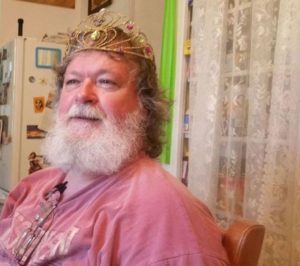 Publishing Talks began as a series of conversations with book industry professionals and others involved in media and technology, mostly talking about the future of publishing, books, and culture. As every media business continues to experience disruption and change, I’ve been talking with some of the people involved in our industry about how publishing might evolve as it is affected by technology and the larger context of culture and economics.
Publishing Talks began as a series of conversations with book industry professionals and others involved in media and technology, mostly talking about the future of publishing, books, and culture. As every media business continues to experience disruption and change, I’ve been talking with some of the people involved in our industry about how publishing might evolve as it is affected by technology and the larger context of culture and economics.
I’ve expanded this interview series to include conversations that go beyond the future of publishing. I’ve talked with editors and publishers who have been innovators and leaders in independent publishing in the past and the present, and will continue to explore the ebb and flow of writing, books, and publishing in all sorts of forms and formats, as change continues to be the one constant we can count on.
Tom Montag is a poet, critic, editor and publisher whom I have known for many years. I love his biography, which emphasizes his pure identity as a midwesterner. Unlike so many Americans, he has lived in the midwest for his entire life, and his work identifies deeply with where he lives. He does not need to declaim his role as a true poet of place.
Tom was somewhat famously the editor of Margins: A Review of Little Magazines and Small Press Books during the 1970s, was active in the Milwaukee literary scene, and was an editor and feature writer for Wisconsin’s Fox River Patriot during its heyday from 1977 to 1979. With his wife Mary, he edited and published the Wisconsin Poet’s Calendar from 1982 to 1984, which was subsequently handed to the Wisconsin Fellowship of Poets to continue.
Tom spent the better part of his work life at the family owned Ripon Community Printers in Ripon, Wisconsin. During those years, he wrote pithy sayings from a character he called Ben Zen. Four collections of the BZ poems were published between 1992 and 2000.
His memoir, Curlew: Home is about his first fourteen years spent on a farm outside Curlew, Iowa, and about his sense of loss in revisiting the community forty years later. Kissing Poetry’s Sister gathered eleven of Montag’s essays about writing and being a writer, including his long piece on creative nonfiction.
After he retired from his Ripon job, he spent five years creating “Vagabond in the Middle,” an attempt to determine what makes us middle western. He has been collecting stories from residents of twelve communities across the middle west, true stories of their families, their lives, and their connections to the places they inhabit.
Tom and I have worked together on publishing projects at Woodland Pattern in Milwaukee, and we’ve presented together there and at the Lorine Niedecker festival in Fort Atkinson, Wisconsin. Tom’s writing and editing has meant a great deal to me over the years, we are linked in so many ways, yet have such different backgrounds, and it was a great pleasure to speak to him here about his lifetime of work in writing and publishing, though to be sure, we barely scratched the surface of what we could have talked about.
SOMETIMES
Sometimes
in the weeds
a loveliness.
This moment
among all
the moments.
Rain when it’s
needed. Tom,
stop wanting
anything more.
MY FATHER,
holding the Y
of willow
lightly
in his hands,
walks the land.
The willow
leaps
for something
we do not
see: Here,
my father says
to the man,
drill here.
Tom is the author of many books and has edited anthologies as well. His most recent large scale collection is In This Place: Selected Poems 1982-2013.
There are two really good written interviews with Tom in the Wombwell Rainbow and the Mocking Heart Review. You can learn more about Tom and his work here and you can keep up with his prodigious output of poetry at his outstanding blog The Middle Westerner where you will regularly find him posting poems that will endure.
“Exploring the heart of the country; or, as Nancy Besonen has said, “Tom Montag is defining the character of the Midwest – one character at a time.”
Thanks Tom, for being who you are.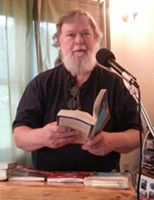
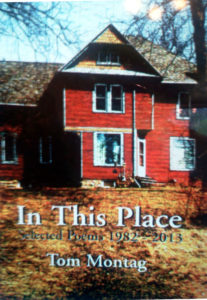
Podcast: Play in new window | Download
Amy Stross: The Suburban Micro-Farm
September 19, 2019 by David
Filed under Non-Fiction, WritersCast
 The Suburban Micro-Farm: Modern Solutions for Busy People – Amy Stross – 9780997520835 – Twisted Creek Press – Paperback – 356 pages – $34.95 – March 23, 2018 – ebook versions available at reduced prices.
The Suburban Micro-Farm: Modern Solutions for Busy People – Amy Stross – 9780997520835 – Twisted Creek Press – Paperback – 356 pages – $34.95 – March 23, 2018 – ebook versions available at reduced prices.
“…this book takes a permaculture approach to starting a micro-farm in the suburbs that speaks not just to a stay-at-home mom or dad, but to all busy people. Indeed, it is one of the few gardening books that is aware that you may not have a lot of time to start a garden, and shows you that it’s still possible anyway.” – Jesse Frost, Hobby Farms
I love gardening, gardens, and would be thrilled if every suburban lawn was turned into a vegetable garden, berry patch or orchard (or all of those things). I’m an enthusiastic gardener, but not a great planner, and I need the kind of help that Amy Stross provides in this truly excellent book. Even if you never pick up a hoe or dig in the dirt, you will learn a huge amount about food growing in relatively small spaces from this book and you will be able to explain to your neighbors, friends and family why they all should be outside right now working on their gardens.
There is so much good information, and reading this book is so inspiring, it is impossible to know where to begin in describing it. Suffice to say, while there are many great books about gardening, but this one deserves to be on every gardener’s bookshelf, and especially for any beginner who wonders how to get started, this book is essential. There is alot of work involved when you seriously grow vegetables and fruit in a small space, and planning is essential. This book provides the gardener, beginner or otherwise, with terrific tools for planning and organizing, and for avoiding the many mistakes that are easy to make along the way to growing your own fruit and vegetables.
Now that it’s fall, this is the perfect time to start planning your garden for next year. Read this book, lay out and build your garden beds, and order seeds for spring! If you’ve never gardened before, start with a small space you can handle and build from there.
Here are just a few things covered in The Suburban Micro-Farm:
How to make your landscape as productive as it is beautiful
Why the suburbs are primed with food-growing potential
How to choose the best crops for success
Why you don’t need the perfect yard to have a micro-farm
How to use easy permaculture techniques for abundant harvests
The idea of an edible yard is more than just romantic, it is a practicality for many of us. There are lots of benefits besides being able to grow your own food – getting rid of lawns and lawn maintenance is good for the natural environment and makes a dent in climate change mitigation, raising vegetables and fruit is healthy for your body in two ways – the work of gardening is good for your health and the food you eat from the work you put in is always better than what you can buy in a store, even an organic one.
Amy is a terrific teacher, well organized, thoughtful and clear eyed.
I really enjoyed speaking with her and recommend this book to any and all who will listen. Visit her website here to learn more about Amy, her approach to gardening, and where to buy the book (though I recommend purchasing from my friends at Chelsea Green Press, who have been publishing books in this category for many years).
And have fun in the dirt! I was inspired by reading this book to build a bigger garden this year, which was very productive, and next year, we are planting blueberries and fruit trees in our very small front yard. Thank you Amy Stross!
Nonfiction Book Awards 2018 Gold Winner
Foreword INDIE Awards 2018 Gold Winner (Hobbies & Home category)
Nautilus Book Awards 2018 Silver Winner (Green Living & Sustainability category)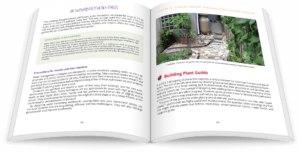


Podcast: Play in new window | Download
Fred Waitzkin: Deep Water Blues, a Novel
August 18, 2019 by David
Filed under Fiction, WritersCast
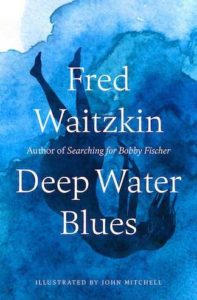 Deep Water Blues: A Novel – Fred Waitzkin – 9781504057745 – 160 pages – Open Road Media – paperback – May 28, 2019 – $17.00 – ebook versions available at lower prices.
Deep Water Blues: A Novel – Fred Waitzkin – 9781504057745 – 160 pages – Open Road Media – paperback – May 28, 2019 – $17.00 – ebook versions available at lower prices.
Fred Waitzkin’s Deep Water Blues is a surprisingly affecting short novel based to a great extent on his personal experiences in a small boat on the open water and islands of the Caribbean. Because it is based in so much lived experience, it has an authenticity that shines through in every page. In Deep Water Blues three older men (including the boat’s owner) and one younger man, a painter who has never been to sea, leave Ft. Lauderdale on an old boat heading for a Bahamian island that has an almost mythical story and appeal. Each is there for a different reason and each will gain something different from their adventure. But the story is really about the island and the mysteries of what happened there.
When I first started reading this book, I did not expect to find it as compelling as I did in the end. There’s alot more here than initially meets the eye, and this is a book I can recommend to readers.
Waitzkin calls his book a “curated blend of real-life experience and fiction.” Deep Water Blues tells a compelling story about an unusual man in an exotic place, an almost mythical story whose hero suffers a classic fate and redemption in a mysterious and beautiful location, bringing to mind Shakespearean and Biblical storytelling. Waitzkin writes in spare prose that carries his story through to its exciting end, and makes a short book impactful beyond its length.
Fred Waitzkin was born in Cambridge Massachusetts. He was an English major at Kenyon College in Ohio, then taught English at The College of the Virgin Islands, where he also got to pursue his love of fishing for big game fish. Fred and his wife moved to New York City, where Waitzkin wrote feature journalism, personal essays and reviews for numerous magazines including Esquire, Forbes, the New York Times Sunday Magazine, the New York Times Book Review, New York Magazine, Outside Magazine, and Sports Illustrated.
Waitzkin’s first book was Searching for Bobby Fischer. Published in 1984, it’s the story of three years in the lives of Fred and his chess prodigy son, Josh Waitzkin. The book became an internationally acclaimed best seller, and the film based on it was nominated for an academy award.
Mortal Games, his biography of world chess champion, Garry Kasparov was published in 1993, and was followed in 2000 by The Last Marlin, a memoir. The Dream Merchant, Waitzkin’s first novel, was published in 2013 – Deep Water Blues is his second published work of fiction. Fred still lives in Manhattan with his wife Bonnie, and still spends as much time as possible on his old boat, Ebb Tide.
It was my pleasure to speak with Fred, and while we talked about the book at hand, our conversation went into a variety of related coves and channels.
Visit Fred Waitzkin’s website to learn more about him and his writing.
“Deep Water Blues does what all fine literature aspires for – it transports readers to another time and place, in this case, to a sleepy, lush island deep in the Bahamas. Fred Waitzkin writes about life, sex and violence with aplomb, and Bobby Little is a tragic hero fit for the Greek myths. Hope to see everyone on Rum Cay soon.” – Matt Gallagher, author of Youngblood
“Fred Waitzkin effortlessly recreates a singular world with uncanny insight and humor. His language is remarkable for its clarity and simplicity. Yet his themes are profound. This is like sitting by a fire with a master storyteller whose true power is in the realm of imagination and magic.” – Gabriel Byrne, actor and director
Podcast: Play in new window | Download
Cuong Lu: The Buddha in Jail – Restoring Lives, Finding Hope and Freedom
July 18, 2019 by David
Filed under Non-Fiction, WritersCast
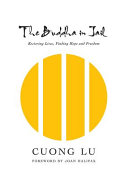 The Buddha in Jail: Restoring Lives, Finding Hope and Freedom – Cuong Lu – OR Books – paperback – 112 pages – 978-1-682191-84-2 – $18.95 – April 2, 2019 – ebook versions available at lower prices.
The Buddha in Jail: Restoring Lives, Finding Hope and Freedom – Cuong Lu – OR Books – paperback – 112 pages – 978-1-682191-84-2 – $18.95 – April 2, 2019 – ebook versions available at lower prices.
Foreword by Roshi Joan Halifax.
I’ve studied and read and been around Buddhist teachings for a number of years. I’ve always been attracted to Buddhism’s psychological approach and to its ideas about self, being and letting go of suffering, though I have never practiced Buddhist meditation enough to attain a meaningful experience of inner peace. Reading Cuong Lu’s short book was a powerful experience for me, because unlike many books about Buddhism, it is so practical, and so filled with lived experience. Socially engaged Buddhism is extremely powerful, as it brings concepts of inner peace and understanding into play with the actual lived experience of people and works with their actual suffering. It is not theory, but practice. Cuong Lu lives that experience and brings it to us in a really meaningful way.
Cuong Lu was a Vietnamese refugee who arrived in Holland as a young boy, and struggled to learn who he was in a country that was very foreign to him, after many traumatic experiences. He discovered Buddhism and spent a number of years studying with the renowned Vietnamese Buddhist teacher, Thich Nhat Hanh, and in 1993 was ordained a monk at Hanh’s community, Plum Village in France. In 2000, he was recognized as a teacher in the Lieu Quan line of the Linji School of Zen Buddhism and then spent six years ministering to inmates in Dutch prisons as a prison chaplain.
This book is a collection of 52 vignettes – the stories and teachings in which Cuong Lu shares insights into the prisoner’s mindset, and by extension all of us, those who are physically imprisoned, and of course, those many others of us who are psychologically imprisoned.
As a prison chaplain, Cuong discovered that when the men inside allowed themselves to feel their pain – connecting to their buried and unacknowledged feelings, that knowing and feeling the truth enabled them to find inner sources of strength they had never experienced previously. When these prisoners felt themselves to be touched, and accepted without judgment, understood in a pure way, it transformed their sense of self, with the result that they were able to change their own attitudes, self images, and ultimately their behavior and relationships to others.
Ultimately, this book is not about the prisoners. It’s about each of us who read the book. We limit our ideas of ourselves, of self and confused projection for reality. We don’t understand or recognize what freedom and happiness are, that they are states we can experience deeply and thoroughly through a fuller understanding of the nature of our beings and relationship to self and universe. It will always require a process to attain this kind of understanding, but when we do the work of meditation and inner viewing, we discover the freedom and happiness already within. This book can be viewed as an introduction to a way of living and being that might change our world for the better.
Speaking with Cuong Lu, it is easy to understand why he is such a great teacher. He is centered, calm and clear, and able to explain easily the sometimes complex and confusing system of understanding that Buddhism represents. It was a great pleasure for me to have the opportunity to speak with him about this book and his experiences.
“In The Buddha in Jail, Cuong Lu demonstrates how to be in a helping relationship without getting caught in roles. As a prison chaplain, he did not attach to the idea of being a helper, or even of ‘helping.’ He sat quietly, deeply present with each inmate, and saw each of them as a soul, not just their personality or their troubled past. By dwelling in love with each person, accepting them without judgment, one by one they transformed, and their recidivism was close to zero. I congratulate Cuong Lu for the depth of his prison ministry and this beautiful book.” —Ram Dass, author of Be Here Now and Walking Each Other Home: Conversations on Loving and Dying
“To free ourselves, we have to unlock the doors from within. Chaplains like Cuong Lu play an essential role in freeing those in prison from their inner demons, offering guidance, support, and loving kindness, teaching stillness and self-reflection, learning to connect with their fierce and loving hearts. I highly recommend The Buddha in Jail, a good read and a great resource for understanding prisoners and for finding the keys to the prisons in our own minds.”
—Spring Was-ham, author of A Fierce Heart: Finding Strength, Courage, and Wisdom in Any Moment
Cuong Lu, Buddhist teacher, scholar, and writer, was born in Nha Trang, Vietnam, in 1968. He majored in East Asian studies at the University of Leiden, and in 1993 was ordained a monk at Plum Village in France under the guidance of Thich Nhat Hanh. In 2000, he was recognized as a teacher in the Lieu Quan line of the Linji School of Zen Buddhism. In 2015, he received a master’s degree in Buddhist Spiritual Care at Vrije University in Amsterdam. Lu is the founder of Mind Only School, in Gouda, the Netherlands, where he teaches Buddhist philosophy and psychology, specializing in Yogachara Buddhism combined with the Madhyamaka (Middle Way) School of Nagarjuna.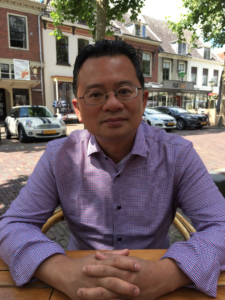
Podcast: Play in new window | Download
Erica Wagner: Chief Engineer: Washington Roebling, The Man Who Built the Brooklyn Bridge
May 6, 2019 by David
Filed under Non-Fiction, WritersCast
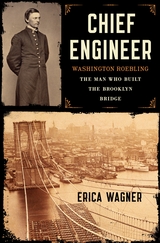 Chief Engineer: Washington Roebling, The Man Who Built the Brooklyn Bridge – Erica Wagner – 9781620400524 – Bloomsbury – Paperback – 384 pages – $18 – February 5, 2019 – ebook versions available at lower prices
Chief Engineer: Washington Roebling, The Man Who Built the Brooklyn Bridge – Erica Wagner – 9781620400524 – Bloomsbury – Paperback – 384 pages – $18 – February 5, 2019 – ebook versions available at lower prices
“A welcome tribute to the persistence, precision and humanity of Washington Roebling and a love-song for the mighty New York bridge he built.” – The Wall Street Journal
It is surprising to learn that Washington Roebling, builder of the Brooklyn Bridge and a major contributor to American industrialism of the late nineteenth and early twentieth century, has never had a full biography before this one, written by the excellent essayist and critic, Erica Wagner. I found her account of Roebling’s life story completely compelling. His relationship with his famous father, John Roebling, his experience and important role in the Civil War, and the amazing years-long effort to build one of America’s most iconic – and still fully operational – bridges, is brilliantly set forth by Wagner. She documents the important involvement of Roebling’s brilliant wife, Emma Warren Roebling is the completion of the bridge after Roebling’s health was compromised by illness, and gives us a portrait of an extraordinary and representative American life.
Frequently confused with his more famous father, Roebling has been forgotten or ignored by many. Yet his life holds interest for modern readers for a variety of reasons. His story is very much an American one – his family emigrating from Germany, living on the early 18th century American frontier, fighting in the Civil War, and becoming a key figure in the establishment of a modern American industrial society. We learn that Roebling was himself surprisingly self aware psychologically, a constant observer of his own and others’ human nature, how much he suffered both physically and psychologically, wounded by the abuse of his powerful father, and how he overcame so many obstacles to live a long life, adapting to the rapid pace of social and business life during a remarkable period in American history.
Erica Wagner uses Roebling’s recently discovered personal memoir to reveal much about his life that cannot be understood simply from documenting the major events of his life and the built artifacts he left behind. Roebling’s achievements are significant. Wagner’s achievement is that she brings this relatively unknown and complex man and his family to life in prose, a wonderful gift to readers.
American writer and critic Erica Wagner was the literary editor of the London Times for seventeen years and is now a contributing writer for New Statesman and consulting literary editor for Harper’s Bazaar. Her work has appeared in the Guardian, the Economist, Financial Times, and the New York Times, among other newspapers and magazines. She is the author of several books, including Ariel’s Gift, Seizure, and a collection of short stories called Gravity. She lives in London. It was a great pleasure for me to speak with her about this excellent book, and I hope Writerscast listeners will want to seek out and read this book as well.
“A masterful work of research, revelation and gripping narrative. It brings to pulsating life 19th-century New York and New Jersey and manages to be moving, too.” ―New Statesman, “Books of the Year”
Podcast: Play in new window | Download
Peter Rock: The Night Swimmers (A Novel)
April 7, 2019 by David
Filed under Fiction, WritersCast
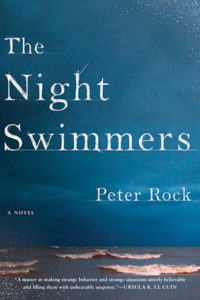 The Night Swimmers – A Novel – Peter Rock – ISBN 9781641290005 – Soho Press – Hardcover – 272 pages – $25.00 – March 12, 2019 – ebook versions available at lower prices.
The Night Swimmers – A Novel – Peter Rock – ISBN 9781641290005 – Soho Press – Hardcover – 272 pages – $25.00 – March 12, 2019 – ebook versions available at lower prices.
As I have said here before, one of the things I like best about doing the Writerscast interviews is that it’s introduced me to the work of many writers I would not have discovered on my own. The Night Swimmers is a perfect example. Peter Rock has been writing extremely fine fiction for many years, and yet I had never run across his work before, which still seems quite surprising to me, given the nature of his work.
Peter’s autobiographical novel captured my imagination from the outset. The writing is luminous and personal, dreamy, yet descriptive. His narrator is a young aspiring writer living temporarily in beautiful Door County in the northern reaches of Wisconsin’s Lake Michigan coastline. He’s bit lost, maybe stuck in his inability to see himself as an adult. He meets a young widow, Mrs. Abel, who is, like him, not exactly clear about herself and who she wants to be. She is older, attractive, smart and mysterious. The narrator finds himself swimming with Mrs. Abel at night without really knowing why, although there is a strong undercurrent of attraction between them, a tension that defines the essential mystery of their relationship, and the way they swim in the depths of the lake across large distances is similar to the ebb and flow of the narrator’s own life. And then Mrs. Abel disappears.
Some twenty years later, the narrator, who is now married, living in San Francisco and the father of two daughters, finds himself trying once again to understand what happened that summer, his psychic history rising to capture him like a deep lake current he used to swim in. He reads old letters and notebooks from the past, explores his relationship to a former lover, tries to understand through a sort of personal archeological expedition the world he once lived in and still cannot fully understand. Back in Door County once again, he tries to find out what happened to the elusive Mrs. Abel, and again he enters the deep lake waters to swim across the night.
Scattered throughout the book is the evidence of the narrator’s archeological exploration of his own history, pieces of paper, old emails, quotations from poets, and references to the extraordinary and strange psychic photographer Ted Serios. This book is a sort of literary pastiche that really could exist in multiple forms and formats, reflecting the author’s psychic imagination crossing over time and space through the medium of memory.
The Night Swimmers is a beautiful, complicated and challenging work of literary inspiration I found completely engaging. And it was a pleasure then, to have the opportunity to speak with Peter Rock about his fine novel.
“Peter Rock has written a weird and haunting story about a younger man and an older woman who like to swim in the dark. Happily The Night Swimmers is no male coming of age story. Instead their secret nightly practice in a dark and foreboding lake shimmers as a queer refusal for either of them to grow up right.”
—Eileen Myles, author of Afterglow
I recommend visiting Rock’s website, and follow the link to The Night Swimmers page, where there are some great visuals related to the book.
Peter Rock was born and raised in Salt Lake City. He is the author of several novels SPELLS, Klickitat, The Shelter Cycle, My Abandonment, The Bewildered, The Ambidextrist, Carnival Wolves and This Is the Place, as well as a story collection, The Unsettling. Rock attended Deep Springs College, received a BA in English from Yale University, and was a Wallace Stegner Fellow at Stanford University. He lives in Portland, Oregon, where he is a Professor in the English Department of Reed College. Leave No Trace, the film adaptation of My Abandonment, directed by Debra Granik, premiered at Sundance and Cannes and was released in 2018.
Podcast: Play in new window | Download
Joseph Kelly: Marooned: Jamestown, Shipwreck, and a New History of America’s Origin
March 18, 2019 by David
Filed under Non-Fiction, WritersCast
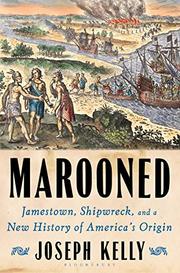 Marooned: Jamestown, Shipwreck, and a New History of America’s Origin – Jospeh Kelly – 978-1-63286-777-3 – Bloomsbury – Hardcover – 512 pages – $32 – October 30, 2018 – ebook versions available at lower prices
Marooned: Jamestown, Shipwreck, and a New History of America’s Origin – Jospeh Kelly – 978-1-63286-777-3 – Bloomsbury – Hardcover – 512 pages – $32 – October 30, 2018 – ebook versions available at lower prices
I really enjoy reading books about American history, and especially lately, books that explore some of the stories and moments that are foundational to the history of this continent, but are not well known or well told. And I’ve also become extremely concerned about gaining a better and more nuanced understanding of those stories that have been told solely from the perspective of the European (white) perspective that dominates our historical narrative, and thus our understanding of ourselves.
Joseph Kelly’s Marooned is just such a book, and I was immediately drawn to it. This is an insightful re-examination of the 1607 Jamestown settlement, the story of which really should replace the Mayflower colony’s position as America’s founding Puritan-centric myth.
In fact, the multiple stories of Europeans’ initial contact with the native peoples who fully inhabited North, Central and South America all require a complete re-examination, and I have been reading several books that provide insight into the way these continents were conquered by the marauding Europeans and their violence and diseases.
Marooned is about much more than just the Jamestown settlement. The book begins by recounting the settlement’s really awful circumstances. Most of those early settlers died of disease or starvation or deserted to the local tribes for protection. The workings of the Virginia Company that was set up to colonize and exploit the supposedly “virgin” New World are fascinating and in some ways depressingly familiar to our modern large scale version of unrestrained capitalism.
The traditional blame for the miseries of Jamestown’s early years goes to those leaders who failed to manage their “lazy” colonists, as opposed to those who were ready, willing and able to literally whip them into shape. But Kelly makes it clear that because it was the aristocrats who wrote the documents on which our traditional history relies, the real story may be, likely is, significantly different. Kelly finds ample evidence that the colonists who were cast into the wilderness, “marooned” from home and trying to survive, experienced a far different reality than their leaders. Many of them had a nascent understanding that Britain’s rigid class structure would not work in this different environment, and that their actual survival required a far more equitable system of governance. In fact, there were many uprisings and expressions of rebellion, all of which were put down, although a limited electoral oligarchy emerged during the course of the 17th century in the Virginia colony.
There are many side trips and journeys throughout this engaging narrative. The story of the castaways from one of the resupply ships on Bermuda, truly a story of being marooned, is striking. Nine ships en route to re-supply Jamestown in 1609 were hit hard by a hurricane, a storm of extreme high winds and waves, and one ship, the Sea Adventure, with some of the key leaders of the expedition on board, was wrecked on the shores of the Bermudas. The crew reached one of the islands in safety, and almost a year later, after building two boats by hand, they sailed again for Jamestown, and somewhat surprisingly, were able to reach their destination not long after departing from Bermuda. This story circulated widely in London, and may well have inspired Shakespeare’s great play, The Tempest. The timing is certainly right for that to be the case.
Kelly contributes a significantly better understanding of the Powhatan Confederacy’s formation and politics before and during the settlement period, as well as the fluidity between the cultures of the native peoples and the colonists. Marooned is not just the story of the Europeans and their conquest, but successfully weaves together the the narrative of the struggles of native peoples of that time and place in their powerful efforts to survive the arrival of the brutal land grabbing English settlers and the lives of the colonists at the lower ends of the social strata, whose stories we rarely, if ever, get to know.
It is a pleasure to discover such a good writer and story teller as Joe Kelly is. In this book, he truly brings history alive through its people, and with a narrative built on a solid grounding of research and a deeper understanding of the complexities of perspective than many other historians.
Joseph Kelly holds a Ph.D. in English from the University of Texas, Austin, and is a professor of literature and director of Irish and Irish American Studies at the College of Charleston. He is the author of America’s Longest Siege: Charleston, Slavery, and the Slow March Toward Civil War, and the editor of the Seagull Reader series. He lives in Charleston, South Carolina. Joe’s blog can be found here.
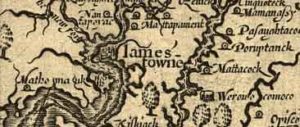
Podcast: Play in new window | Download
Susan Napier: Miyazakiworld: A Life in Art
February 20, 2019 by David
Filed under Non-Fiction, WritersCast
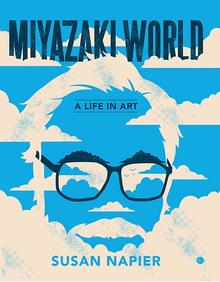 Miyazakiworld: A Life in Art – Susan Napier – 9780300226850 – Yale University Press – Hardcover – $30 – September 4, 2018 — 344 pages – illustrated – ebook versions available at lower prices
Miyazakiworld: A Life in Art – Susan Napier – 9780300226850 – Yale University Press – Hardcover – $30 – September 4, 2018 — 344 pages – illustrated – ebook versions available at lower prices
If you don’t know about Miyazaki and his spectacular animated films, I recommend you immediately seek out and watch at least two or three of the best of his films by way of introducing yourself to one of the most original and influential cultural figures of the post WWII era.
And this book, Miyazakiworld: A Life in Art, will be your guide to this creative genius’s oeuvre. Susan Napier brilliantly summarizes and analyzes Hayao Miyazaki’s life and work. She reveals much about the external influences on his work, his own particular life during and after World War II in Japan, and explores his cultural impact on Japan and the rest of the world, particularly the United States. Of course, if you are already familiar with Miyazaki, and have absorbed some or all of his incredible work, this book will illuminate much about the creator that you did not know before.
A thirtieth-century toxic jungle, a bathhouse for tired gods, a red-haired fish girl, and a furry woodland spirit all spring from the mind of Hayao Miyazaki, now well-known for films such as My Neighbor Totoro, Princess Mononoke, Spirited Away, Howl’s Moving Castle, and The Wind Rises.
Susan Napier is a professor at Tufts. She is a scholar specializing in contemporary Japanese culture. But this is not a dry academic explication of the master’s work. Napier is truly a fan, and she is a culturally adept explorer with a deep knowledge and understanding both of Japanese culture in general and of animated films and other key forms of Japanese pop culture. Napier brilliantly connects the multiple themes present in Miyazaki’s work, which features powerful female characters, is marked by environmental disasters, politically charged approaches to contemporary life, and a powerful sense of cultural and personal trauma and how to cope with it. She brings to life an understanding of an extremely complicated and sometimes mysterious individual, whose lifelong commitment to a unique artistic vision has transformed culture and art for millions of dedicated fans in Japan and all over the world.
Susan Napier is the Goldthwaite Professor of Rhetoric and Japanese Studies at Tufts University. She is the author of Anime from Akira to “Howl’s Moving Castle”: Experiencing Contemporary Japanese Animation, among other books.
It was my pleasure to have the opportunity to explore Miyazaki’s work in conversation with Professor Napier. You can read more about Susan from the Tufts website here. There was an excellent review of this book in the Washington Post here. And here is a link to the book at the Yale University Press website.
The NY Times was kind enough to make a 2017 list of Miyazaki’s films in order of importance – here.
Movie still from “Kiki’s Delivery Service.” (gkids/1989 Eiko Kadono – Studio Ghibli)
Podcast: Play in new window | Download
Philip Connors: A Song for the River
January 28, 2019 by David
Filed under Non-Fiction, WritersCast
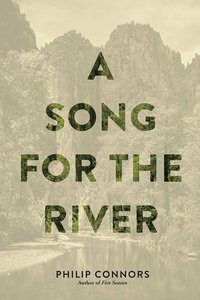 A Song for the River – Philip Connors – 978-1-941026-90-8 – Cinco Puntos Press – Hardcover – 256 pages – $22.95 – September 18, 2018 – ebook versions available at lower prices.
A Song for the River – Philip Connors – 978-1-941026-90-8 – Cinco Puntos Press – Hardcover – 256 pages – $22.95 – September 18, 2018 – ebook versions available at lower prices.
“The river that runs through the wilderness opens his heart: the mountains burn, friends die, and green shoots sprout from the ashes.”
Philip Connors, like some other fine writers of the desert southwest, notably Gary Snyder, Jack Kerouac and Norman Maclean, has been a long time fire lookout. Phil has spent many years in the Gila Wilderness in New Mexico. He began working as a fire lookout in 2002, and wrote about his experience in an earlier book, Fire Season: Field Notes From a Wilderness Lookout.
As it happens, I visited the Gila Wilderness for the first time in 2018, and was completely smitten by its beauty and the magnitude of the mountains, the vistas, and the Gila River. I’m sure I had read about the Gila at some point; it is famous for being the first wilderness area established anywhere in the world (in 1924), principally through the efforts of the great naturalist Aldo Leopold. Leopold was himself one of our best writers about nature; the Forest Service transferred him to Wisconsin, perhaps fortunately for the rest of us, as his Sand County Almanac has inspired so many to a better understanding of the natural world.
The Gila area is not only beautiful, but it is historically important as well. When we were there, we visited the famous Mogollon cliff dwellings, which are simply extraordinary. After that culture disappeared, the Gila was subsequently home to the Apache, and then the American pioneers, outlaws, and miners who displaced them. It’s an area which Connors knows intimately, and this powerful and emotionally gripping book reflects the depth of his knowledge of places and people, of the natural landscape and the depth of both human despair and our equally transcendent spirit.
There is a great deal of pain and sorrow in this book, but the spiritual and emotional power of Connors’ writing and his ability to transform experience into something resonant is important for himself and for his readers. The power of the writing is palpable and strong. It’s a beautiful book that I hope will be read by many.
Wilderness is where the heart grows stronger, or breaks, or both. No matter, we need these places and the writers who, like Connors, bring forth meaning out of pain, beauty out of loss.
Philip Connors was raised on a farm in Minnesota, went to the University of Montana for college, and spent a number of years working as a journalist. But he became disillusioned and made his way west, which clearly has become his true home and emotional center. His first book, Fire Season: Field Notes From a Wilderness Lookout won the National Outdoor Book Award, the Sigurd Olson Nature Writing Award, the Reading the West Award for nonfiction, and the Grand Prize from the Banff Mountain Book Competition. His second book, All the Wrong Places, a memoir of life after his brother’s suicide, was published in 2015.
Talking to Philip after reading this beautifully written, moving narrative of nature and loss was a great experience for me.
“Everything that is absent in the current political crises of this nation is abundantly present in Philip Connors’ A Song for the River: humility, quietude, forgiveness, and gratitude. His writing is pure, exact, compassionate, and often elegaic…I loved this book.”
—Benjamin Alire Sáenz, winner of the PEN/Faulkner for Everything Begins and Ends at the Kentucky Club
Visit Philip Connors’ own website here and his outstanding, El Paso based publisher, Cinco Puntos Press, here.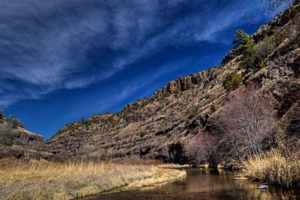

Podcast: Play in new window | Download

